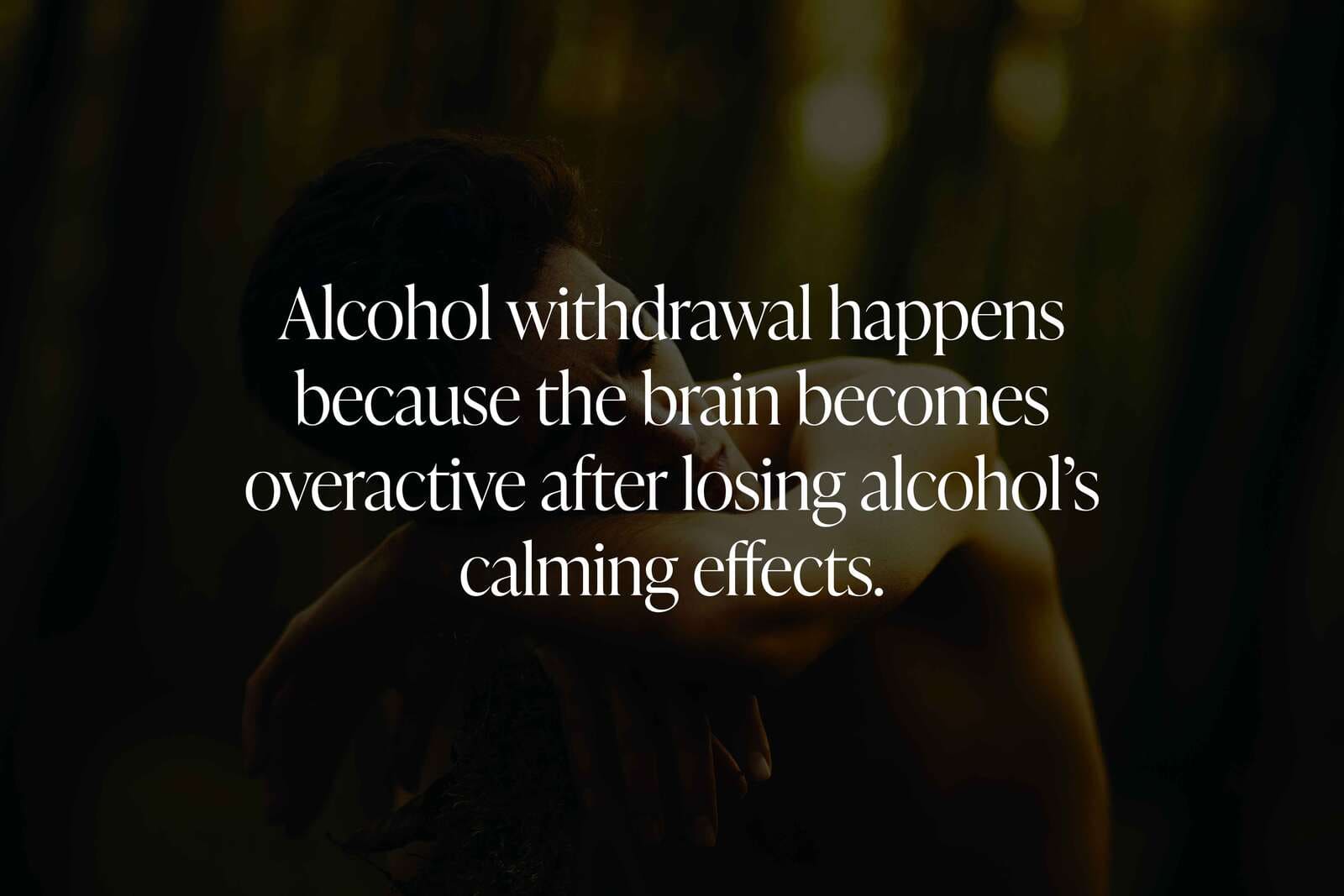Table of Contents
Alcohol withdrawal is a series of physical and psychological symptoms that occur when a person who has been drinking heavily or regularly stops suddenly. It happens because the brain and body adapt to the constant presence of alcohol, and removing it disrupts that balance.
The Science Behind Withdrawal
Alcohol slows brain function by enhancing the activity of gamma-aminobutyric acid (GABA), an inhibitory neurotransmitter, and reducing glutamate, an excitatory neurotransmitter. Over time, the brain compensates by producing less GABA and more glutamate. When alcohol use stops, there is not enough GABA to calm brain activity, leading to overexcitation.
This overactivity causes symptoms like anxiety, irritability, tremors, and — in severe cases — seizures or delirium tremens.

Timeline of Withdrawal Symptoms
- 6–12 Hours After Last Drink: Anxiety, headache, nausea, increased heart rate.
- 12–48 Hours: Sweating, confusion, irritability, mild hallucinations.
- 48–72 Hours: Seizures, fever, severe agitation, delirium tremens (DTs).
Symptoms can last for several days, and their intensity varies depending on drinking history, overall health, and whether withdrawal has occurred before.
Coping With Withdrawal Safely
Withdrawal can be dangerous, so it’s important to manage it safely:
- Seek Medical Supervision: Especially if you have a history of severe withdrawal or other health conditions.
- Stay Hydrated: Replace lost fluids with water and electrolyte-rich drinks.
- Eat Small, Balanced Meals: Avoid heavy, greasy foods that can worsen nausea.
- Use Relaxation Techniques: Deep breathing, meditation, and light stretching can reduce anxiety.
- Avoid Triggers: Stay away from environments or people that encourage drinking.
Structured treatment programs like alcohol rehab provide medical monitoring, symptom management, and counseling during this process.

Long-Term Recovery Beyond Withdrawal
Withdrawal is only the first step. Without continued support, the risk of relapse remains high. Therapy, peer support groups, and healthy lifestyle changes are crucial for maintaining sobriety.
Connecting This to the Bigger Picture of Alcohol Use
How Long Does Alcohol Stay in Your System? Understanding the Detox Timeline
Understanding BAC decline helps you plan safer behaviors and avoid risky situations.
How Long Does Alcohol Stay in Your Urine and Affect Testing?
Testing methods can detect alcohol well after its intoxicating effects have worn off.
What Happens to Your Body During Alcohol Detox?
Detox is a physical reset that often requires professional oversight for safety.
Can You Speed Up Alcohol Detox Naturally?
Supporting your body through hydration and nutrition can ease the process, but time is the only factor that clears alcohol completely.











